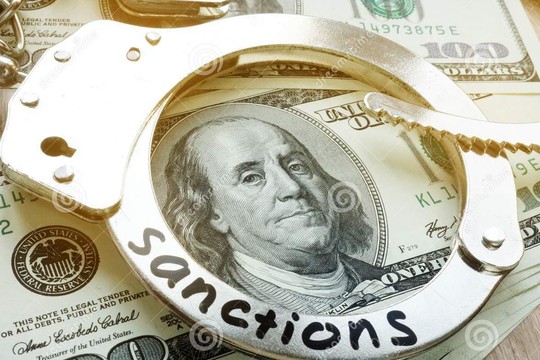Pic.: developingeconomics.org
Sanctions as a form of economic aggression are macho and myopic, yet countries including the UK refuse to call a halt. We might as well call them a tool for entrenching and prolonging dictatorship, notes ‘The Guardian’.
Among the more improbable countries that Donald Trump punished most severely last week was Syria, with a 41% tariff in retaliation for its part in the “raping and plundering” of the US economy. That should teach it a lesson for toppling Bashar al-Assad last year.
The Damascus regime that subsequently came to power is pleading for help in keeping order and restoring its economy. But the chief obstacle is not Trump’s absurd tariff – now reduced to 10%. It is the sanctions regime imposed on it for the past 14 years by the west, including Britain. The US prohibits nearly all trade and financial transactions, extending this to foreign companies engaged with the Syrian government. EU sanctions targeted crude oil, investments, banking, telecoms and more. No tariff could be as severe as this.
Tariffs are sanctions by another name. It is hypocrisy for Britain and others to criticise Trump for using a tool they have in effect deployed for decades. Sanctions never work as intended. Their purpose is to persuade usually authoritarian regimes to alter their policies or submit to pressure from their internal foes. Evidence of them doing this is all but nonexistent. Sanctions have become mere signals of virtue by western politicians.
In the 21st century, sanctions have replaced gunboat diplomacy as neo-imperial outreach. They keep the rest of the world poorer and supposedly weaker. The US had about 900 classes of sanctions in force in 2000. This year it has more than 15,000. The UK has thousands in an interventionist bureaucracy of staggering complexity. The foreign office calls them “a powerful foreign and security policy tool”, a claim without a shred of evidence.
We might as well call them a tool for entrenching and prolonging dictatorship.
The most-sanctioned regimes are among the longest-lasting in modern history, such as North Korea, Iran, China, Russia and Cuba. A sanction is a badge of security.
Current economic measures against Russia rank among the most severe and counterproductive perhaps of all time. They were first imposed in 2014 to attempt to reverse Moscow’s policy on Ukraine. Since then, they have toughened almost monthly. Banning contact with Russia has not diminished Vladimir Putin’s domestic support. He might even take comfort from the fact that most western leaders who sanctioned him in 2022 have since lost office.
In February, the UK announced the “largest sanctions package against Russia since 2022”. It included 107 new orders, with a gleeful mention of “14 new kleptocrats”. Nowhere did it explain how this was supposed to work. The sceptical Economist magazine has charted the futility of these measures. Russia’s economic performance: GDP grew in real terms by more than 3% last year. Unemployment remains at a record low. And there is little evidence of corporate distress.” Russia has out-performed Britain ever since this economic war was declared. At least part of the cause has been the soaring price of energy, a self-inflicted wound by the west on a par with Trump’s tariffs.
The reason is that the world economy adjusts with extraordinary fluency to new realities, as it will to Trump. Sanctions against Moscow hasn’t meant the end of trade with Russia. Iran’s oil exports have risen 12-fold in the past six years, largely through China’s help. Kazakhstan’s exports to Russia rose from $40m in 2021 to $298m in 2023. More than 100 British companies admit to breaching sanctions.
Western economic aggression has failed even to dent Putin’s policy in Ukraine.
read more in our Telegram-channel https://t.me/The_International_Affairs

 10:29 20.04.2025 •
10:29 20.04.2025 •























